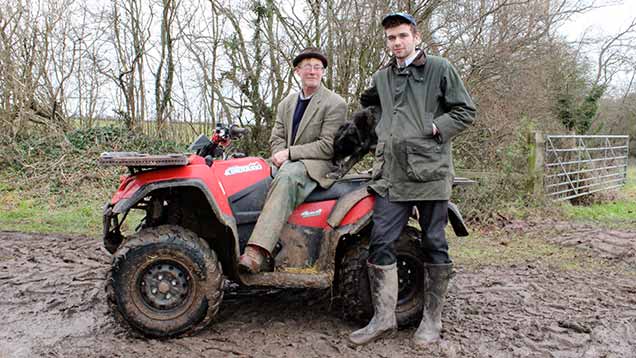Top tips for finding or becoming a mentor in farming
 Andrew Wear and William Hinton
Andrew Wear and William Hinton The National Sheep Association gives their advice on finding or becoming a mentor:
Tips on finding a mentor
- No two sheep enterprises are the same, so finding a mentor who can advise on every element of your business will be tough. Sit down and identify specific areas you particularly want help with.
- Think about whether you’re looking for in-depth technical advice on a single topic, say grassland management or recording data, or whether it’s more about having someone local who can call past occasionally to look things over or be at the end of the phone.
- Once you’ve got a clear idea of exactly what you need, approach local and national groups to recommend potential mentors. NSA is always on hand to help young people in the sheep sector, but if you contact us saying you want to find someone who has a passion for direct marketing, for example, then it will be easier for us to consider your request than you just saying “I want a mentor”.
- Everyone in the sheep sector wants to see young people get on and succeed, but very few have an abundance of time, so be specific about what you need, realistic about what can be offered and appreciative of what people give in return.
- A mentor with a wealth of knowledge and time would be the ideal scenario, but in the meantime think about where else you can go for help. Eblex, HCC, QMS and others have an abundance of best practice information, so do your homework first, research an idea you want to implement in your flock, and then find someone else who is doing it and talk to them about the practicalities.
Tips for becoming a mentor
- If you are enthusiastic about encouraging the next generation let organisations such as NSA know you are keen to help.
- When considering becoming someone’s mentor, think about the similarities and differences between your businesses. Being a mentor is not about saying they have to do it the same way as you, but explaining and demonstrating what suits you and why.
- Don’t think you can’t be a mentor because you don’t have time. Allowing someone to come to your farm one day and exchanging emails every now and then might be all some people need; it will vary from person to person.
- Be up front about what you can and can’t do and set boundaries. If you’d rather meet up once a month than take phone calls every week then say that at the beginning.
- Work it in with what you’re already doing. For example, if you’re attending a farm walk or going to the NSA Sheep Event then offer to spend that day as a mentor. You can discuss things as you go along and relate it to your own businesses back at home.
